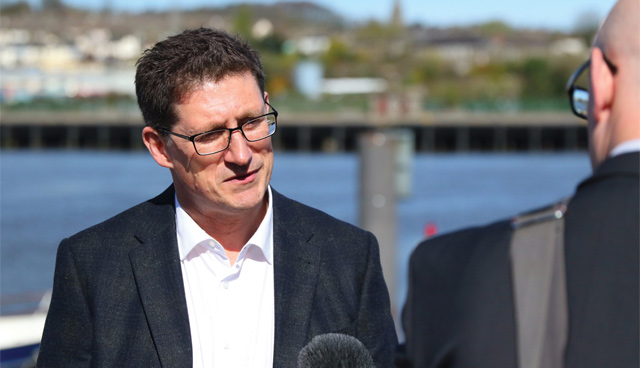Green Party holds virtual annual conference

Joining the tri-party coalition government was the “right thing to do”, party leader Eamon Ryan told the Green Party’s virtual annual conference in October.
In his speech to the virtual conference, Ryan reiterated his belief that the Green Party’ post-election tactics had been the correct approach. Arguing that the eventual deal agreed with Fianna Fáil and Fine Gael was the “right thing to do” in order to fight the Covid-19 and climate crises, Ryan also added that he felt the party had done “the right thing by opening talks with every other party and not ruling out any options for government”.
“I also think we were correct to say in mid-March as the first wave of Covid-19 broke that any further talks should be delayed until the immediate crisis was over,” he further said. Ryan used his keynote speech at the virtual conference to emphasise that the Green Party would deliver on its agenda while in government, with €1 million a day to be spent by the Government on the creation of new walking, cycling and active infrastructure throughout the State. Ryan also committed to a significant ramping up of public transport infrastructure.
Ryan’s comments came as the party conference showed clear divergence between the parliamentary Green Party and its youth wing, the Young Greens. Young Greens chair Tara Gilsenan used her speech to criticise the party’s decision to enter government with Fianna Fáil and Fine Gael, stating that the Young Greens had opposed the Programme for Government “for a variety of reasons, including but not limited to, the glaring absence of climate justice and a just transition”.
Gilsenan also criticised the actions of the party since entering government: “The parliamentary party can justify what they wish by saying that they had to make these sacrifices to get climate action. Even if it were true it would not negate the fact that we have betrayed our founding principles and alienated and hurt the Irish people. We know what people in this country want, especially what young people in this country want, and it is not this Government.” Gilsenan has since resigned as chair of the Young Greens, saying that she had been “overlooked, left out, ignored, bullied and harassed by members and elected representatives of the party”.
Party deputy leader Catherine Martin used her speech, on the same day as Gilsenan’s, to say that the party should not be judged on climate action alone, and that the party should also work towards social justice, inclusion, income equality, fairness and equality goals. “Unfortunately, many others might not know or appreciate this,” she said. “Notwithstanding that this single issue is of course the greatest challenge facing humanity, social justice inextricably travels through the very core of ecological justice.”
Martin reflected on a difficult year for the party, with the deputy leader admitting that the Greens had “lost some very good members, some because they didn’t agree with the decision we made to enter government”.
Also notable at the online conference was the rejection of a motion tabled by the party’s two MEPs, Grace O’Sullivan and Ciarán Cuffe, for the party to adopt a co-leader power structure. Needing two thirds of the vote to pass, the motion was defeated by a margin of 120 against versus 116 for. On his Twitter account after the vote, Cuffe said he was “disappointed” the motion had not passed. “We’ve never been an ‘Uno duce, una voce’ party. No doubt we’ll discuss this again,” he wrote.





